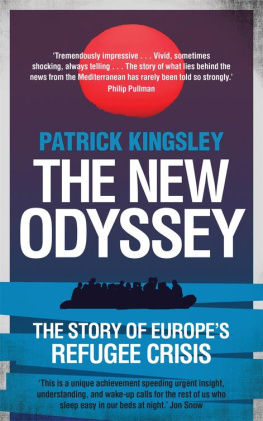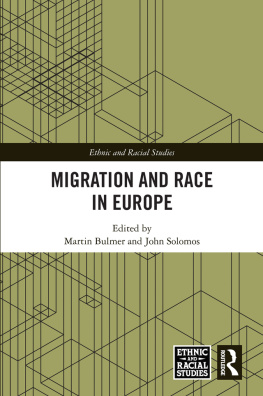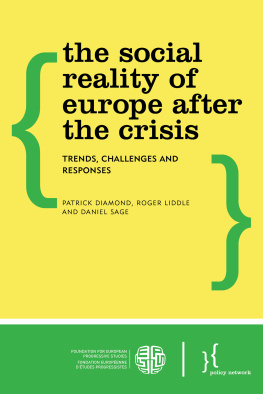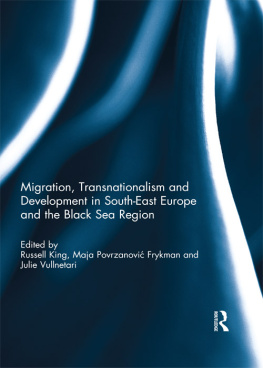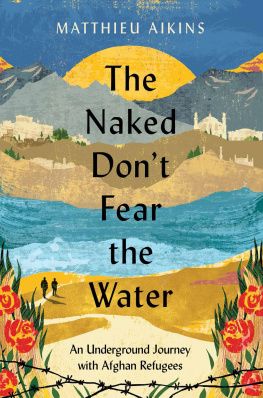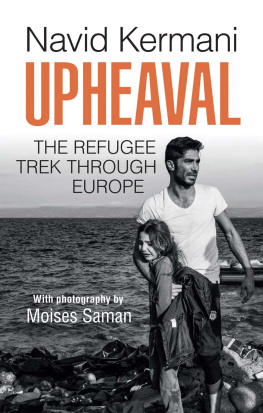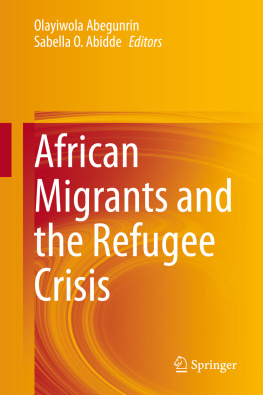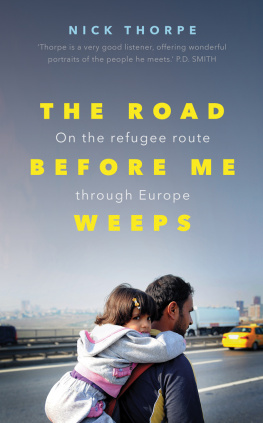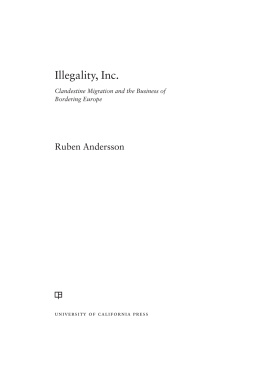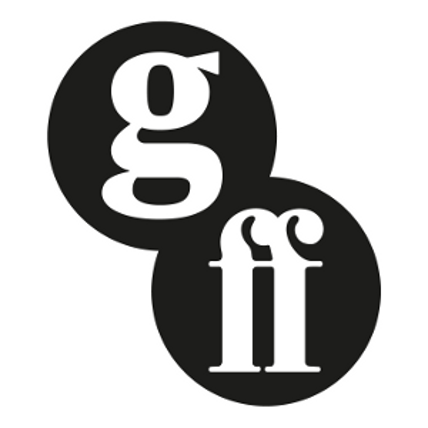
Deeply moving and hugely timely Kingsley reminds us that behind the statistics lie real lives, driven by desperation and simply wanting a safer future Compulsory reading.
Caroline Lucas, MP
Kingsley writes from right inside the greatest movement of humanity in crisis to strike the Mediterranean and Europe since the Second World War. We suffer the lives so many suffered both at sea and on land, and suffer too the shifting response from the rest of humanity. He disentangles the individual from the mass. This is a unique journalistic achievement speeding urgent insight, understanding, and wake up calls for the rest of us who sleep easy in our beds at night.
Jon Snow
Kingsley tells the story of the greatest exodus of modern times in richly recognisably human terms, investigating and illuminating so much that gets routinely misreported and misrepresented. This book skilfully deepens our understanding of the reasons which force people to embark on such perilous searches for safety and also the motivations of the people who profit from facilitating those journeys Compelling.
Maurice Wren, Chief Executive of the Refugee Council
A really moving and important publication. It provides a basis of fact and analysis that is truly important at a time of great challenge for humanity.
Peter Sutherland, United Nations Special Representative for International Migration
The pile of half-read books by my bedside is a guilty embarrassment but this was so engaging and well written that it was, almost uniquely for me, consumed in full over a few days. The New Odyssey is a gripping and frequently emotional read. Kingsley documents the overarching crisis of 2015 in vivid colour. The contrasts between cold-hearted exploitation, the agonies of the Western policy-makers and their officials, and the warmth of the best of human generosity for those in trouble are clearly drawn. The policy failures that have led to this brilliantly documented account now only allow policy-makers difficult and uncertain choices, ironically mimicking those of the central character.
Crispin Blunt, MP, Chairman of the Foreign Affairs Select Committee, House of Commons
To my mother and father
Contents
1 Hashem al-Souki and his wife, Hayam, and three children, Milad, Mohamed and Osama
( Sima Diab)
3 Migrants leave the city of Agadez prior to crossing the Sahara
( Issouf Sanogo/AFP/Getty Images)
4 The road through the Sahara
( Patrick Kingsley)
5 A refugee boat from Libya
( Maasimo Sestini)
6 A boat in trouble refugees land on the Greek coast
( Sean Smith)
7 Refugees try to reach the Greek coast in a dangerously packed dinghy
( Alexander Zemlianichenko/AP)
8 A smuggler advertises his services on Facebook
( Facebook)
9 A shopfront in one of the main shopping streets in Izmir, Turkey
( Patrick Kingsley)
10 Captain Leopoldo Manna, a senior Italian coastguard
( Patrick Kingsley)
11 Eritrean refugees relax on the deck of the Mdecins Sans Frontires boat, the Bourbon Argos, after being rescued off the Libyan coast
( Patrick Kingsley)
12 MSF aid workers prepare to rescue a stricken refugee boat off the coast of Libya
( Patrick Kingsley)
13 The GreeceMacedonia border a father carries his child through the Balkans
( Robert Atanasovski/AFP/Getty Images)
14 Hungarian police allow a refugee family to cross the countrys border with Serbia
( Antonio Olmos)
15 Fattemah, Nasser and Hammouda walk through the Balkans towards Macedonia
( Patrick Kingsley)
16 Eric Kempson scans the distant Turkish coastline for refugee boats
( Sima Diab)
17 Hans Breuer, Austrias last wandering shepherd
( Patrick Kingsley)
18 Hashem hides behind the Sddeutsche Zeitung, before crossing the French-German border
( Patrick Kingsley)
19 Hashem celebrates, moments after crossing safely into Sweden
( Patrick Kingsley)
20 Hashems diary of his journey
( Sima Diab)
no one puts their children in a boat
unless the water is safer than the land.
from Home by Warsan Shire
If any god has marked me out again
for shipwreck, my tough heart can undergo it.
What hardship have I not long since endured
at sea, in battle! Let the trial come.
from Homers Odyssey
Wednesday, 15 April 2015, 11 p.m.
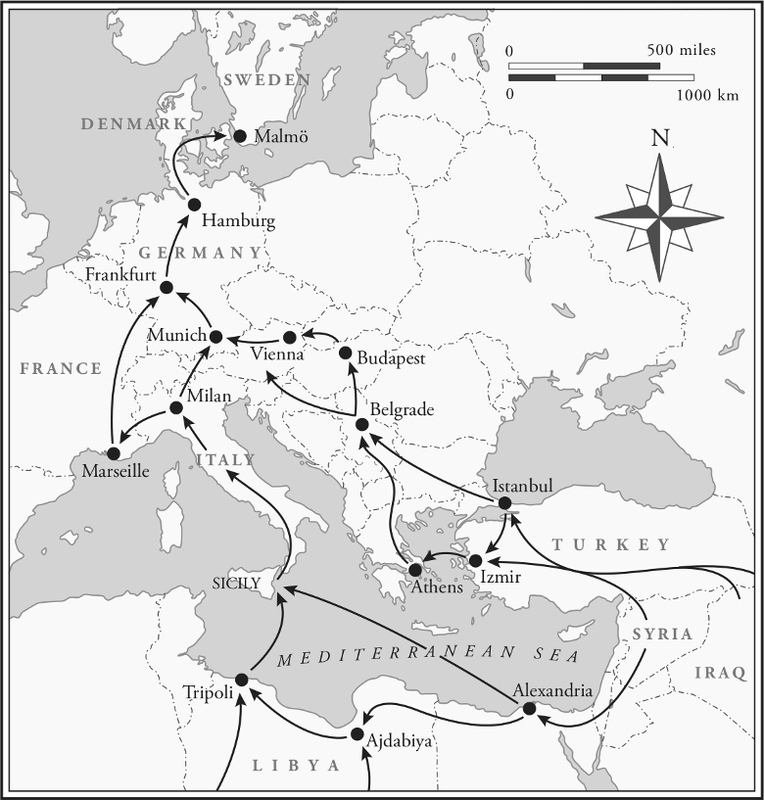
Routes into Europe
In the darkness far out to sea, Hashem al-Souki cant see his neighbours but he can hear them scream. Its partly his fault. They are two African women perhaps from Somalia, but now is not the time to ask and Hashem is spreadeagled on top of them. His limbs dig into theirs. They want him to move, fast, and so would he. But he cant several people are sprawled on top of him, and theres possibly another layer above them. Dozens are crammed into this wooden dinghy. If anyone tries to shift, a smuggler kicks them back into place. They dont want the crammed boat to overbalance, and then sink.
It is perhaps eleven at night, but Hashem cant be certain. Hes losing track of time, and of place. Earlier in the evening, on a beach at the northernmost tip of Egypt, he and his companions were herded into this little boat. Now that boat is who-knows-where, bobbing along in the pitch darkness, lurching in the waves, somewhere in the south-eastern Mediterranean. And its passengers are screaming.
Some of the screams are in Arabic, some not. There are people from across Africa here, others from across the Middle East. There are Palestinians, Sudanese and Somalians. And Syrians, like Hashem. They want to get to northern Europe: Sweden, Germany, or anywhere that offers them a better future than their collapsed homelands. For that distant hope they are risking this boat trip to the Italian coast. All being well, they should reach Italy in five or six days. But, for now, Hashem doesnt know if hell survive the night. Or if anyone will.
An hour passes. They reach a second boat, a bigger one, and then a third, bigger still. At each new vessel, the smugglers toss them over the side like bags of potatoes. Now they have a bit more space, but theyre soaked. They had to wade through the waves to get to the dinghy, and the second boat was full of water. Their clothes drenched, they shiver. And they retch. The person squeezed to his left pukes all over Hashem. Then Hashem pays the favour forward, spewing all over the person to his right. He looks up, and realises everyones at it; everyones clothes are caked in other peoples vomit. Each has paid more than $2000 to spew over fellow refugees. Its a vomiting party, Hashem thinks to himself.

Perhaps the most extraordinary part of this scene is just how ordinary it has become. The world is currently witnessing the biggest wave of mass migration since the Second World War and the most dramatic example of this phenomenon is occurring in the Mediterranean sea. In 2014 and 2015, around 1.2 million people crossed the Mediterranean in leaking boats like this one. home to 86 per cent of refugees. Now Europe is also waking up to the crisis.
Migration to Europe is by no means new. African migrants have long tried to reach Spain from Morocco, or the Canary Islands from Senegal. For years, Libya, Turkey and Egypt have been springboards for people hoping to get to Italy, Greece and Bulgaria. But never before have migrants come in such extraordinarily high numbers.

